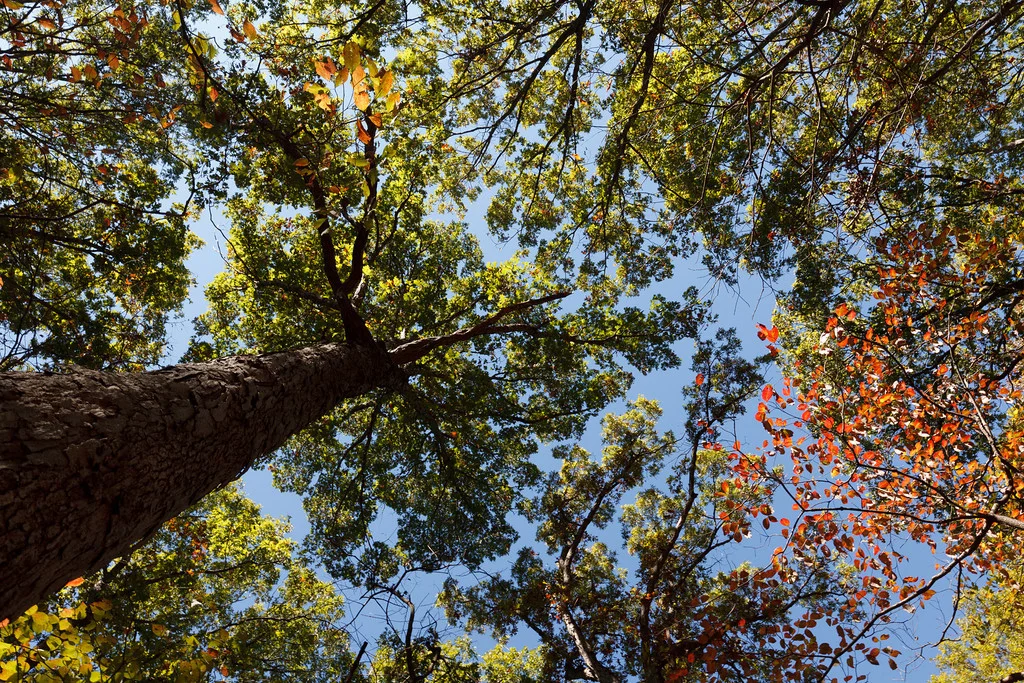research team mentor
Principal Investigator
Jonathan Myers, PhD (Biology)
Associate Professor of Biology
Washington University in St. Louis
Faculty website: wubio.wustl.edu/myers
Myers Lab website: www.myersecologylab.com
Smithsonian ForestGEO Plot website: www.ctfs.si.edu/site/Tyson+Research+Center%2C+Missouri
Email: jamyers@wustl.edu
Research focus for summer 2025
Changes in biodiversity through space and time constitute some of the most striking features of life on earth and have broad implications for human health, the production of renewable resources, and global climate regulation. Yet human activities are altering biodiversity through changes to environmental conditions such as climate, disturbance, habitat fragmentation, and productivity. Our research team seeks to understand patterns and causes of biodiversity at multiple scales, ranging from variation in the diversity of species’ traits to gradients in the assembly, diversity, and dynamics of ecological communities across the planet. We explore three questions at the interface of ecology, biogeography, and biodiversity conservation:
Community Assembly from Local to Global Scales: What processes determine community assembly across temperate and tropical ecosystems?
Biotic Interactions & Environmental Change: Why does environmental change (e.g., drought, fire, ecosystem productivity) alter species interactions and ecological networks?
Species Traits & Biodiversity Change: Why do changes in the species and trait diversity of regional biotas influence community assembly and ecological restoration in human-modified landscapes?
At Tyson Research Center, we explore these questions using a combination of field experiments, large-scale and long-term observations in natural ecosystems, and ecological analysis and synthesis of biodiversity data from around the world. Our summer research team will focus on two projects:
A 35-year study of tree biodiversity and forest change in a large Ozark forest-dynamics plot that is part of the Smithsonian Forest Global Earth Observatory (CTFS-ForestGEO), the largest, systematically studied network of forest-ecology plots in the world (63 plots in 24 countries). Our team will conduct the first 5-year re-census of trees in the plot to explore the question of how and why forests are changing across temperate and tropical ecosystems. Read more and watch video
A landscape-scale fire experiment in which we are exploring the question of how and why forest plant communities respond to ecological restoration with prescribed fire, environmental variation (soil-resource availability), and natural enemies (seed predators & herbivores). Read more
Skills
techniques
methods
The large-scale nature of our research projects requires a large and diverse research team. As a member of our team, you will develop field, research, and teamwork skills useful for a wide range of careers:
Plant Identification: At the start of the field season, you will participate in a multi-day workshop on plant identification where you will learn basic plant taxonomy, how to use tree- and seed-identification keys, and how to identify plants in the field.
Biodiversity Surveys: You will learn how to survey tree communities at all stages of forest development including seed dispersal, seedling establishment, tree growth and mortality. You will learn how to: 1) establish permanent tree and seedling plots; 2) tag, identify, measure and map trees and seedlings; 3) survey changes in experimental seedling plots in burned and unburned forests; 4) measure leaf, stem and root traits important for plant growth and survival; and 5) measure variability in environmental conditions including fire heterogeneity, soil moisture, soil nutrients, and light levels.
"Big Data": You will learn how the data from our projects are being used by scientists to address questions about biodiversity, forest change and conservation, and ecological restoration at local to global scales.
Ecological Analysis: You may gain experience with data entry and analysis of large databases using Excel and R.
research conditions
Our team will have the opportunity to spend most of the summer working outdoors in the forest! We will also occasionally spend time in the lab and greenhouse identifying seeds collected from the forest, measuring plant traits, and entering data. Although temperatures under the forest canopy are cool relative to more-open habitats, members of our team must be comfortable working outdoors under arduous conditions that include walking across steep terrain, hot/humid weather, working in the rain, and mosquitoes and ticks. All members of our team will receive training in 'best-practices' for fieldwork and field safety. Our overarching goal is for everyone to have a fun and safe field experience!
Team structure and opportunities for individual research
Our team will consist of a primary research mentor (Jonathan Myers), a seasonal field technician, undergraduate fellows, and high school apprentices. During most of the field season, our entire team will work collaboratively in smaller sub-teams supervised by research mentors. All team members will have the opportunity to experience all of the projects described above. Each student will present a poster at the Tyson Summer Research Symposium at the end of the field season.
We encourage motivated students to pursue individual research projects. These can include: 1) data collection, data analyses, and/or data syntheses that lead to a research poster presentation at the Washington University Undergraduate Research Symposium; 2) independent research for course credit (BIOL 200 or BIOL 500) in the fall or spring semesters; and 3) senior honors theses that lead to research presentations at professional conferences and/or peer-reviewed publications. WashU students interested in senior honors theses should contact Jonathan Myers prior to the start of the field season.


